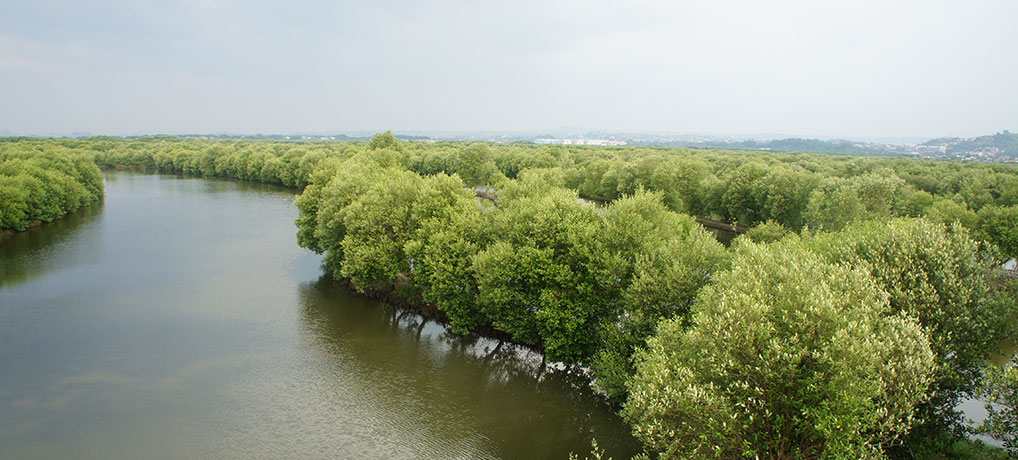
Flooding is a major environmental risk facing urban populations in Semarang, Indonesia. BuGIS project brings together two research teams from Loughborough University (LU) and Universitas Diponegoro (UnDip) to collaborate and develop a long-lasting partnership that will help to address this societal problem, enhance positive impact on vulnerable flood-prone communities in Semarang, and build research capacity.
The project aims to increase the flood resilience of Semarang by integrating Blue Green Infrastructure (BGI) concepts into the development of that city’s drainage. BGI is an approach that integrates water management and green infrastructure to replicate natural water cycles (Blue-Green Cities, 2016). This aim will be achieved by developing a sustainable Flood Risk Management strategy for Semarang that embraces the technical (structural and non-structural) approaches of BGI and aligns them with local community-based activities. The project will seek to integrate future research and development (R&D) into urban development planning with heightened capacity for resilience against the impacts of climate change.
The objectives of BuGIS are as follows (with corresponding work package/WP):
- To identify BGI approaches that could be feasible for the local context – WP1
- To develop a causal map of socio-economic-institutional issues influencing the adoption of BGI – WP2
- To develop implementation guidance and recommendations – WP3
- To develop strategic R&D roadmap to support long-term flood risk management, with recommendations for wider uptake of BGI and capacity building – WP4
These objectives will be achieved through engagement with technical and non-technical stakeholders which will enable co-production of resilience solutions that are technically desirable and culturally feasible within the local context, but are also relevant for many urban contexts in other nations.
The project will have a direct impact on vulnerable communities (by raising awareness and capacity to deal with flooding) and support the development of research-informed policies that facilitate community resilience, and wider research capacity.